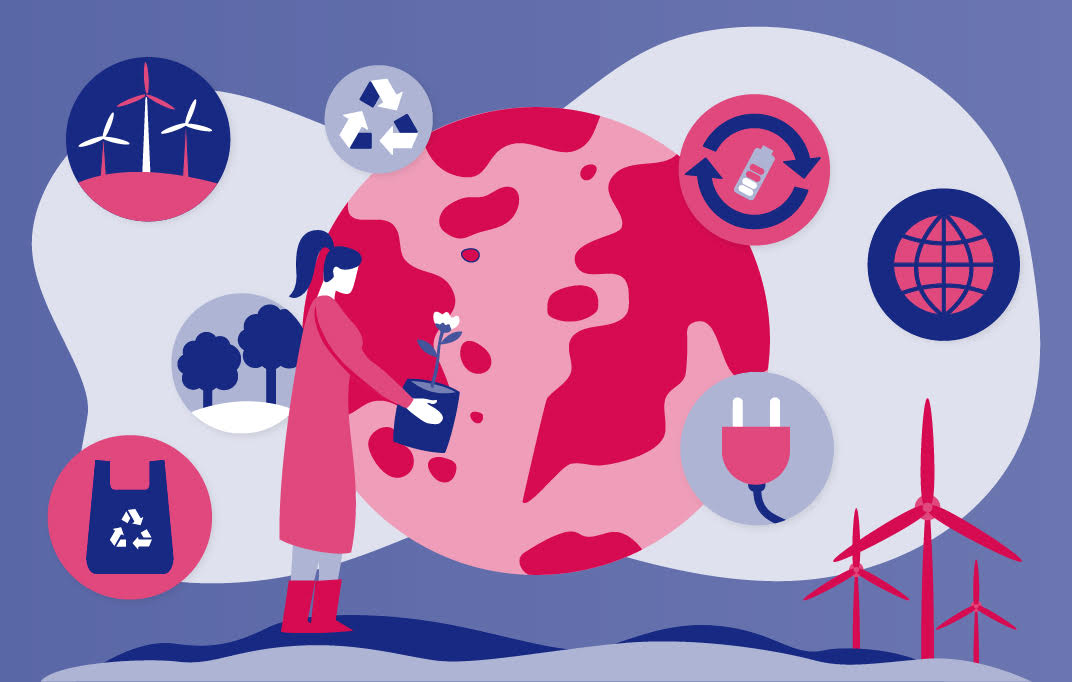The bioeconomy means using renewable biological resources from land and sea, like crops, forests, fish, animals and micro-organisms to produce food, materials and energy.
Stronger development of the bioeconomy will help the EU accelerate progress towards a circular and low-carbon economy.
It will help modernise and strengthen the EU industrial base, creating new value chains and greener, more cost-effective industrial processes, while protecting biodiversity and the environment.
More about the EU’s bioeconomy strategy and action plan.
BIOEAST Initiative
The BIOEAST Initiative aims to develop knowledge-based circular bioeconomies in Central and Eastern European (CEE) countries by 2030. Its mission is to enhance inclusive growth, create value-added jobs, particularly in rural areas, and maintain environmental sustainability.
Key objectives include:
- Increasing Biomass Production: Promoting sustainable practices to make CEE countries competitive food and feed producers.
- Circular Processing: Encouraging zero-waste approaches to develop bio-based value chains.
- Strengthening Rural Viability: Fostering innovative, climate-ready growth models in rural communities.
The initiative addresses five primary challenges: improving research and innovation infrastructure, exploiting bio-based value chains, creating systemic governance, strengthening rural communities, and overcoming financial barriers. It promotes strategic cooperation and evidence-based policy-making to drive sustainable development and improve the quality of life in the region.
Source: https://bioeast.eu/
News:
- Two Successfully Completed POLICY ANSWERS Trainings on Sustainable Agriculture in Montenegro
- POLICY ANSWERS Workshop: Optimise Your Business and Benefit from Circular Economy and Green Transition
- New Master’s Programme on Circular Economy and Bioeconomy
- The BEAMING Project Presented at the Researchers Night in Banja Luka
- Bosnia and Herzegovina Participating in Green CBC, Cross-Border Open Innovation Bioeconomy Network
- ESINERGY Project Addressing Power Imbalance in Electrical Grids
- World Bank: Green Policies Needed to Build Climate-Resilient Agriculture in North Macedonia
- North Macedonia’s Renewable Energy Future: Blueprint for Transition
- Kosovo Launches €20 Million Project for Rural Development and Agritourism
- Renewable Energy Support for SMEs in Kosovo: First Phase of the Call for Photovoltaic Systems Concludes
- Bioeconomy and Energy Efficiency: EU and Kosovo’s Joint Efforts in Promoting Renewable Resources
- Discussing the Drivers of Building Joint Programming: Green ERA Hub and BIOEAST Partnering for the Future (Event Report)
- Widening Towards the Western Balkans: Feedback from Green ERA-Hub Event
Events:
- Shaping the future of farming and the agri-food sector
- Launch of the Community of Practice (CoP) on Nature-Based Solutions in the Western Balkans
- Training for Supporting the Development of Sustainable Agriculture and the Food Value Chain in Tivat, Montenegro
- Training for Supporting the Development of Sustainable Agriculture and the Food Value Chain in Niksic, Montenegro
- Training for Supporting the Development of Sustainable Agriculture and the Food Value Chain in Berane, Montenegro
- Circular Biobased Economy Joint Undertaking (CBE JU) Info Day 2025
- SCAR/BIOEAST conference on research and innovation
- POLICY ANSWERS Webinar: Water4All EU Partnership, Opportunities for the Western Balkans
- EUBCE 2025
- BIOEAST and BEYOND High Level Conference on CEE R&I Priorities for Soil, Fresh Water Resilience, Food System Security and Bioeconomy Related Policies
- Policy Forum on Advancing Research and Innovation in Central and Eastern Europe within the Framework of Sustainable Natural Resource Management, Food Systems Security, and Biomanufacturing Policy Development
Calls:
- 2025 Sustainable Blue Economy Partnership transnational call. Montenegro eligible
- Public Call for Applications for Training for Implementation of the Circular Economy Principles in Montenegro
- Second Call to Become an EU Bioeconomy Youth Ambassador
Documents:
- Agreement Between Austria and Bosnia and Herzegovina on Scientific and Technological Cooperation
- EU4Green studies on Climate Change Adaptation in Agriculture in the Western Balkans
- Green Transition and Smart Specialisation in the Western Balkans
- Circular Transition for Biomass and Food in North Macedonia
- Sustainable Forest Management in the Western Balkans Region
- Comparative Analysis of the Socio-economic Developments and Competitiveness of the Agri-food Sector at a Sectoral and Macro Level in the Pre-accession Countries
- Interview with Barna Kovács, Counsellor at the Permanent Representation of Hungary to the EU and Secretary General of the BIOEAST Initiative
- A Roadmap towards Circular Economy of North Macedonia
- Green Growth in North Macedonia‘s Agriculture Sector
- BIOEAST Strategic Research and Innovation Agenda (SRIA) and Stakeholder Manifesto
- Hungarian EU Presidency Priorities in the Context of the BIOEAST Initiative and Strong Engagement of Western Balkans
Initiatives:
- Regional Inclusive Biobased Entrepreneurship Solutions (RIBES) Project
- Bioeconomy Excellence Alliance for Stimulating Innovative and Inclusive Green Transition (BEAMING)

